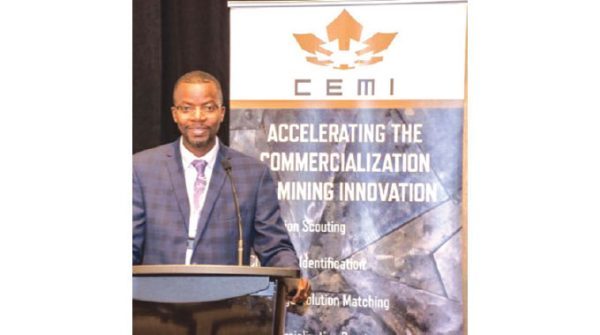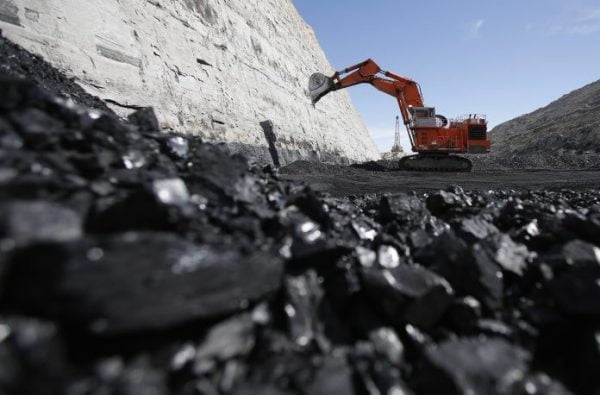Mining diaspora expertise

One of the youthful rising stars in the mining industry, Charles Nyabeze, says Zimbabwe has all the minerals and metal resources necessary to elevate the quality of life of all Zimbabweans.
He also believes Zimbabwe has great potential to contribute all the inputs necessary to transition the world into a low-carbon economy.
Early this week he told Youth Interactions from Canada that he uses social media platforms and the internet to share innovative ideas that promise significant transformation to Zimbabwe’s mining industry.
“For example, technologies that replace mercury in gold extraction and those that use less water in mineral processing.
“The other group of technologies that I have been sharing with the Zimbabwean mining sector via the Association of Mine Managers of Zimbabwe include: Increase Mine Productive Capacity at Lower Cost. Enhanced Productivity (Health, Safety, Value Extraction, Processing, Metallurgy); Reduce Energy Consumption and GHG Emissions. Energy Efficiency, Elimination of diesel, BEV applications, Renewables & GHGs; Mitigate environmental risk and long-term liabilities.
Waste and Waste-water Management (Water Quality, Acid Mine Drainage, Human health Impacts, Remediation & Genomics); and Implement Smart, Autonomous Mining Systems. AI, Automation, Digital Technology — twins, Simulations.
“The world of Mining and Innovation has many players with young people spread out across the ecosystem, which includes Trade Associations, Academic, Research Institutions, Government Agencies and Funders, Government Departments Labs and Agencies, Universities, Colleges, Research and Development Agencies, Accelerators, Incubators, Regional Innovation Centres, Industry Associations, Innovation and Business Support Organisations,”
As part of his contribution in up-scaling expertise in Zimbabwe, Nyabeze participated and presented at the Association of Mine Managers of Zimbabwe Global Virtual Conference held on November 26, 2020, and presented Mining in the New Normal “Transforming Knowledge for Today and Tomorrow”.
His presentation was on Accelerating Innovation into the Zimbabwean mining sector. One of CEMI’s goals, Nyabeze explains, is to make sure the industry is positioning itself well in the future by focusing on clean technology.
In order to realise this goal, Nyabeze says the mining sector must “cross pollinate” with other industries.
Nyabeze is Vice-President of Business Development and Commercialisation for the Centre for Excellence in Mining Innovation (CEMI) in Sudbury, Canada.
His focus is on creating long-term value (commercialisation, revenue generation, leveraging funds, networking, collaboration) for organisations and clients by identifying business development opportunities with both the public and private client segments.
Nyabeze leads CEMI’s Commercialisation Support Service division and is responsible for identifying and securing opportunities to help clients close the commercialisation gap associated with introducing new technologies into the mining value stream.
This role also includes leading in proposal development initiatives, securing global partnerships and collaborators to participate in programme or project initiatives.
Currently, he is leading CEMI in delivering Commercialisation Support Services for the Canadian Mineral Processing Ecosystem as well as leading in the development of the Commercialisation Support Services for the proposed national Mining Innovation Commercialisation Accelerator (MICA) network.
“MICA is going to attract technologies from non-traditional sectors to mining and then advance those into the mining industry,” Canadian media reported him explaining.
“We do have a belief that the technologies that are going to disrupt mining are going to come from other industries, like agriculture, from aerospace, from things like advanced manufacturing, from areas like municipal water treatment services,” he explains.
Nyabeze also says a noticeable change has come over the mining industry, a move that’s making it more accepting to innovation in other sectors. The sector, Nyabeze says, is ready for “disruption”.
“We’re already seeing a critical mass of technologies from other sectors wanting to come into the mining industry. So MICA becomes a vehicle to allow that to happen,” he says.
Although there was no immediate response from the Chamber of Mines of Zimbabwe, Nyabeze’s thoughts on the direction mining is going to have to take comes slightly more than a week before this year’s Mining Indaba takes place in London, the United Kingdom, albeit virtually.
Four Heads of State from Africa — two of them from Botswana and South Africa are attending, the Indaba, spread over two days from February 2 and 3, 2021.
Parading an exceptional line-up of keynote speakers, the Mining Indaba Virtual, will tackle topics ranging from reigniting mining capital, investing in a Covid-19 recovery world, harnessing technology and automation to grow economies to opportunities for battery metals in the global reboot, green metals, Platinum Group Metals (PGM) and global de-carbonisation.
This year’s event has been designed to reflect the priorities of helping to rebuild and shape the future of the industry. Nyabeze’s rural home is in Honde Valley, in the Eastern Highlands of Manicaland.
“I am identified with my fore-fathers of the Humba Totem and I am part of the Manyika ethnic group.”
He was born in Harare’s Highfield and lived in Glen Norah. He also lived in Bulawayo’s Malindela Suburb.
He attended various schools in Zimbabwe, including Lochnivar Primary School (Harare), Hillside School (Bulawayo) and Prince Edward School in Harare.
He left Zimbabwe when he was 16 years old with his parents who were questing for specialization and career development opportunities in Canada.
He attended Canada’s Mining University Laurentian University and studied Mining Engineering. He became exposed to the Mining world because his older brother studied Geology and Geophysics at the University of Zimbabwe.
But he was also inspired to enter into the engineering discipline by a relative who had graduated from Civil Engineering at the University of Zimbabwe.
His sister, Theresa, is also working in mining in Canada. It’s not all work for Nyabeze, who is the president of the Afro-Heritage Association of Sudbury.
Last June Nyabeze was one of the first speakers to open Juneteenth rally in Bell Park that drew people, who braved sweltering temperatures to show their solidarity with the anti-racism, anti-brutality message.
The Black Lives Matter: Racial Injustice Rally was the third demonstration held in the Nickel City to raise awareness for the Black Lives Matter (BLM) movement and its motivations of recognizing and eliminating racism, racial injustice, and police brutality.
It was one of hundreds of such protests that have taken place across the globe since 46-year-old George Floyd was killed on May 25 during an arrest by Minneapolis, galvanizing the collective will of millions of people.
The traditionally American commemoration of Juneteenth honours the date (June 19) in 1865 when slaves living in Galveston, Texas, were informed by Union Gen. Gordon Granger that the civil war had ended, and they were free.
The announcement instituted the Emancipation Proclamation issued by American President Abraham Lincoln more than two years prior, on January 1, 1863.
The Herald


